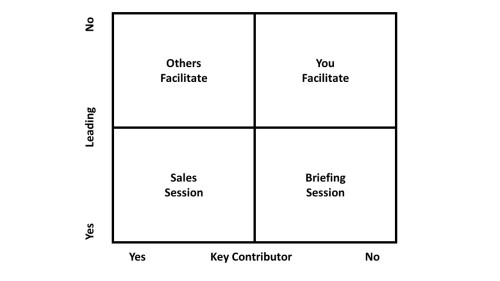 Workshops are a routine feature in many projects. They are typically used either to find a solution to a problem or to develop and integrate knowledge needed for the work (eg, requirements gathering and prioritisation).
Workshops are a routine feature in many projects. They are typically used either to find a solution to a problem or to develop and integrate knowledge needed for the work (eg, requirements gathering and prioritisation).
Effective project managers know that every workshop is a meeting and many of the rules for running effective meetings need to be applied including:
They also know that unlike normal meetings workshops are a creative process that needs the active contribution of the attendees to craft the best answer to the problem or question being posed….. This means time is needed to ‘break the ice’ so that the people in the workshop feel comfortable working together and the facilitator needs to act as a host welcoming and engaging people as they arrive.
The job of the facilitator is to ensure the workshop ‘works’ and produces the required outcomes. The facilitator (or workshop leader) only needs sufficient knowledge of the subject under discussion to allow them to ask pertinent questions and summarise discussion – the core skills of facilitation lay in ensuring everyone is engaged and participates, all points of view are heard, the group works towards a consensus or conclusion efficiently and the outputs are agreed. For more on facilitation see: http://www.mosaicprojects.com.au/WhitePapers/WP1067_Facilitation.pdf
Facilitation is a very useful skill for a project manager to acquire and use, however, to organise and run a successful workshop there are a two key questions that need to be asked very early in the planning stage – unfortunately both of these are frequently overlooked!
Question 1 – Will I be a key contributor to the process of developing the workshop’s output? If the answer to this question is ‘yes’ the project manager should consider engaging someone else to act as the facilitator for the workshop. The role of the facilitator is to make sure everyone contributes, all of the ideas are brought into discussion and the best solution is reached; it is nearly impossible to do this if you are also contributing significant input to the discussion.
Question 2 – Do I want to lead the workshop towards a predetermined conclusion or do I want the workshop to have free reign to explore and develop its own solutions? While a degree of flexibility is needed in both situations, if the workshop is focused on getting buy-in to a concept that is already in mind (quite common in problem solving mode) the approach to managing the workshop will be quite different to an open discussion looking at all of the options.
Based on your answers to these questions there are four quite different types of workshop that require different approaches to deliver successful outcomes:

The best way to approach the planning and running each of these workshop types varies significantly.
You facilitate. In situations where you have no particular input to contribute and no predetermined outcome in mind (beyond the fact you need an outcome) facilitating the work of the group participating in the workshop can be a good way to build credibility and enhance your leadership position. Provided you are comfortable in the role, facilitating the workshop to achieve a useful outcome is a valid role for the project manager. If you are not comfortable in the role, there is nothing wrong with using an experienced facilitator, your objective is simply to get a useful outcome from the process (for example a prioritised list of requirements).
Others facilitate. Where you are going to be a key participant in the workshop process and have significant input to contribute as a subject matter expert, but do not want to drive to a predetermined conclusion, the use of a neutral facilitator is essential. The job of the facilitator is to ensure all of the viewpoints in the room are heard and the outcomes from the workshop incorporate the views of the participants, either based on a consensus or by applying an impartial selection / decision making process. It is virtually impossible to simultaneously be a participating expert and an impartial facilitator.
Briefing sessions. Have a very different focus, the purpose of the workshop is to explore and understand a predetermined proposition. The role of the facilitator shifts towards making sure everyone’s questions are heard and answered, and there is a full understanding of the proposition being put. The outcome from the workshop is focused on creating understanding and buy-in from the participants rather than crafting a free-form solution – depending on the nature of the proposition being discussed, there may, or may not, be opportunities to adjust or fine-tune the concepts. However, provided someone else is the primary source of the concepts being discussed, the project manager can usefully take the role of facilitator.
Sales sessions. Have a similar focus to briefing sessions but the concept being ‘sold’ is primarily ‘owned’ by the project manager. In this situation if you want genuine buy-in from the workshop participants it is essential that the workshop is facilitated by someone else! The facilitator’s job is to make sure everyone is heard and to help lead the group towards a common understanding and consensus. Your job is to answer the questions and ‘sell’ the proposition (and where appropriate adapt your proposition based on the feedback received).
Understanding the objectives of the workshop and the best way for you to participate in delivering a successful outcome lays the foundation for success. Then the hard work starts……..




